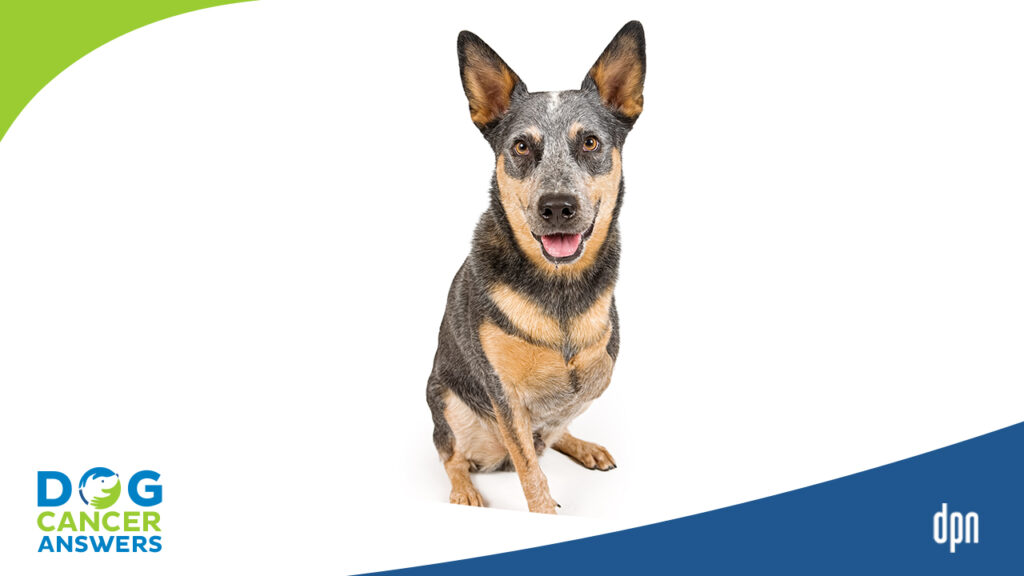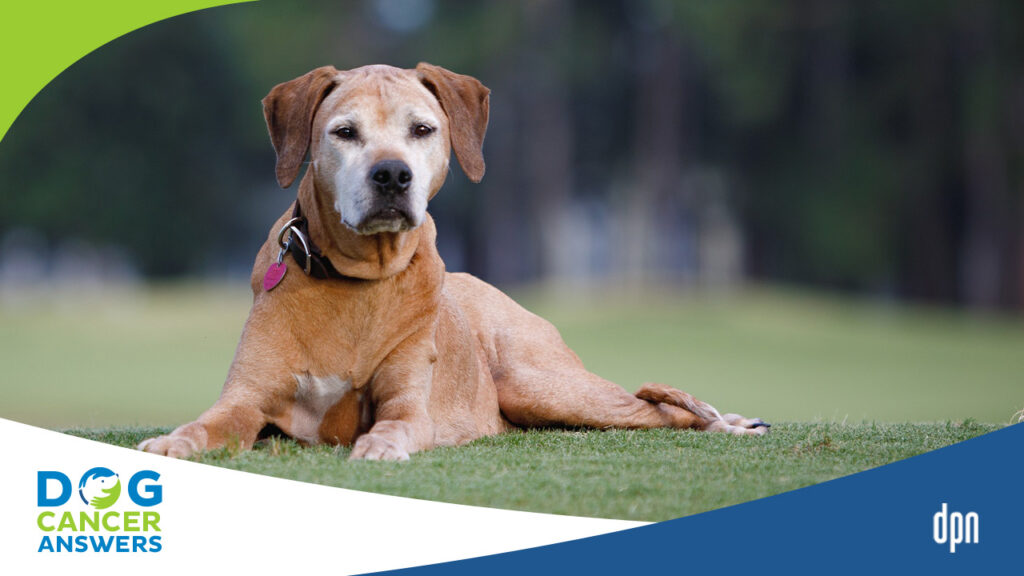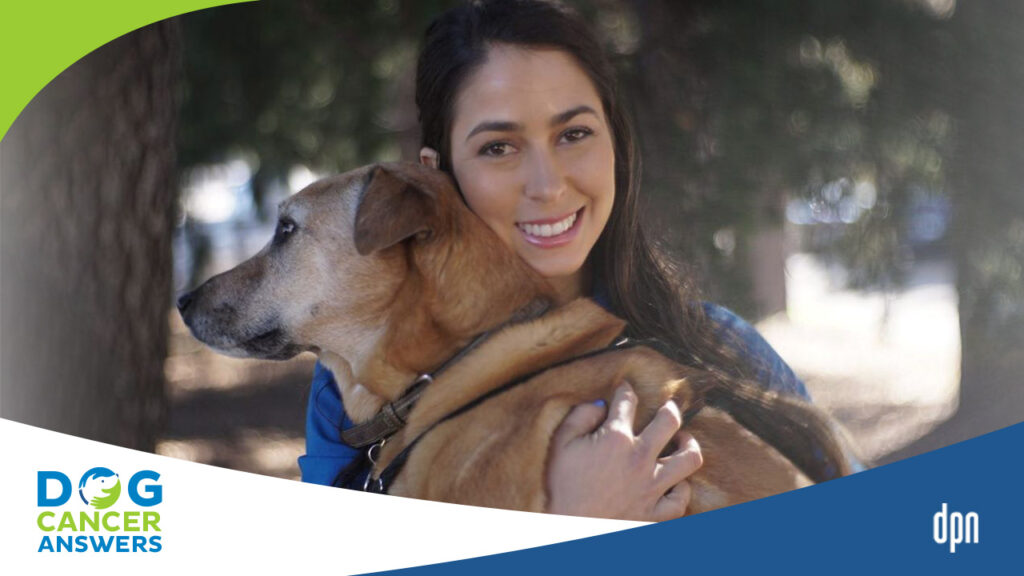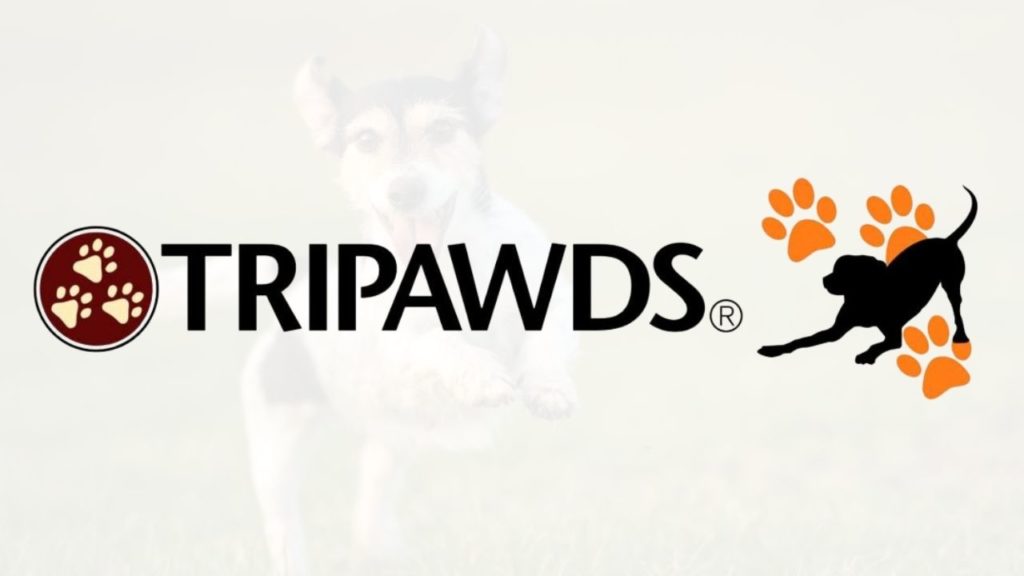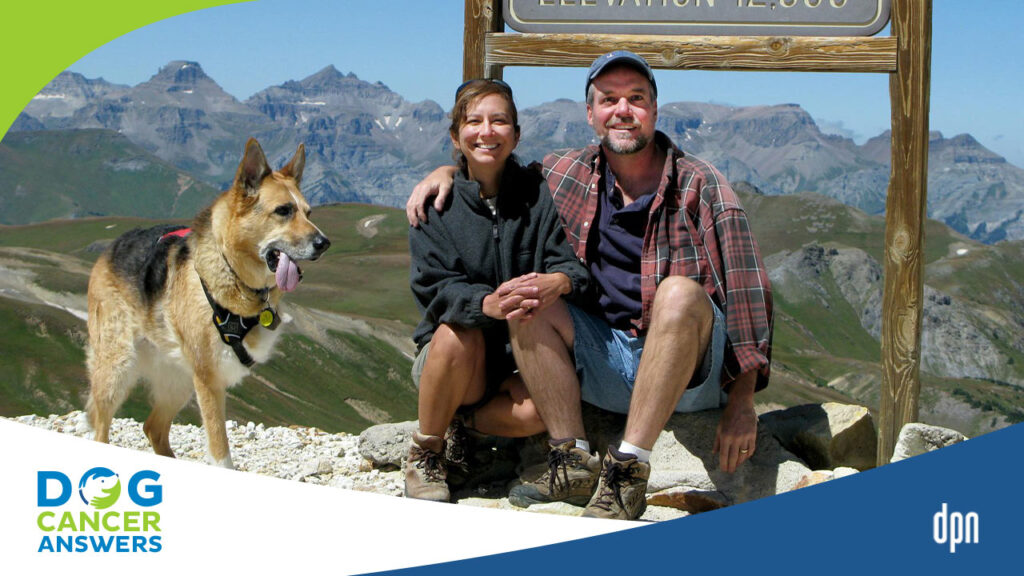>> Dr. Nancy Reese: Amputation is always such a big issue for people considering it for their pets, because they worry about their quality of life and whether they can get around, especially if they’re a big dog or if they have other joint issues going on.
>> Narrator: Welcome to Dog Cancer Answers. Where we help you help your dog with cancer. Here’s your host, James Jacobson.
>> James Jacobson: Hello friend. Thank you for joining me this week for Dog Cancer Answers. Today, we have one of our colleagues and returning guest veterinarians, Dr. Nancy Reese. She’s joining us to answer a question that we received on our Dog Cancer Answers listener line.
Now, if you’re wondering, what is the Dog Cancer Answers listener line? Why, it’s where anyone, including you can call into a recorded voicemail system to ask a question about your dog’s cancer– for one of our veterinary experts to answer on this show.
We check our listener line often, and we do our best to get the question answered on the podcast. Now, obviously not every single question from every one of our listeners makes the show, but we do our best to make this happen, just like we’ve done for this week’s caller, who has a question about amputation.
So, make sure to stick around to the end of this week’s very short episode, to hear the details about how you, too, can call into the listener line to record your own question about dog cancer.
For now, here’s a quick bio on today’s guest, Dr. Nancy Reese. Dr. Nancy is a veterinarian who has over 30 years of clinical experience in the trenches. She is quite learned with a host of degrees in veterinary medicine, including a master’s degree in Preventative Medicine and a PhD in Epidemiology, all from UC Davis, California.
In other words, she is one very smart veterinarian. So, let’s go ahead and get started with this week’s Q and A episode.
Dr. Nancy, thanks again for being with us.
>> Dr. Nancy Reese: It’s a pleasure to be here.
>> James Jacobson: Today, we have a call from a listener whose name is Frank, and he has a question about amputation. Let’s listen to that.
>> LL Caller Frank : Hello, my name is Frank. I’m from Canton, Ohio. My dog is Luca. He’s a German Shepherd mixed breed, about a hundred pounds, seven years old. He has been diagnosed with synovial soft cell sarcoma.
I want to know if amputation is a good option for my dog. The cancer has not spread to any other parts of his body, to date. So again, I’m looking to find out whether amputation is a good option. Thank you.
>> James Jacobson: So, Frank wants to know about amputation for his dog.
>> Dr. Nancy Reese: Amputation is always such a big issue for people considering it for their pets, because they worry about their quality of life and whether they can get around, especially if they’re big dog or if they have other joint issues going on.
But the dogs really don’t seem to mind that they have three legs. Most of them get around so well. So, it really is just a matter of the owner’s perception versus what the dog actually feels is a problem.
The synovial cell sarcomas are certainly locally aggressive. So, they affect a joint in the dog’s body, and it causes a lot of swelling and pain and some bony destruction. So, the animal certainly feels discomfort from that, and they have some chance to spread. So, amputation is certainly the standard of care in terms of trying to get rid of the painful tumor and hopefully not need any follow-up therapy.
There’s not a lot of good chemotherapies for these. They’ve tried some, but really amputation is kind of the best thing, especially since the caller said that it had not spread elsewhere. That makes the prognosis much, much better than if it had already spread somewhere.
If they have metastasis at the time, then it makes the prognosis not so good. But I’d certainly say for a seven-year-old dog, who’s got, hopefully a few years left– amputation would improve his quality of life and keep that tumor from spreading elsewhere.
>> James Jacobson: Well, tell us a little bit about synovial cell sarcoma. Normally, when people are talking about amputation, they’re talking about osteosarcoma. Is synovial cell the same thing?
>> Dr. Nancy Reese: It is a different type of tumor and they can actually get other tumors that affect their joints as well. So, something like a Bernese Mountain, dog, they are prone to something called a histiocytic sarcoma that can affect their joints. And that prognosis is worse than the synovial cell. So, to determine ahead of time, oftentimes they need to have that biopsy done first before considering surgery, because the prognosis would be different.
It is different from bone cancer, from primary osteosarcoma or the classic bone cancer that we think of. That has more dim prognosis overall and does tend to metastasize very quickly to the lungs. Whereas the synovial cells do not do that quite as much. There is some metastasis reported, but nowhere near the rate of osteosarcomas.
>> James Jacobson: Okay. Well, I learned something new about synovial cell sarcoma.
I want to thank you, Dr. Nancy. And thank you, Frank, for your question.
That concludes or almost concludes this week’s question and answer episode with Dr. Nancy Reese on amputation. A big thank you to Frank for calling in this question about his dog, Luca. And a big thank you to Dr. Nancy for always sharing her veterinary expertise with all of us.
Just a quick reminder, that if you haven’t already subscribed to this podcast, why not do it today? Subscribing is free and it’s easy and it helps you get the most out of Dog Cancer Answers. Please do it in your favorite podcast app. And if you know anyone else who is helping a dog with cancer, why not tell them about the show.
Now, don’t go away yet. We have a quick message from our sponsor. And then up next is that info that I promised you about how to call into our listener line with your own question.
Stay tuned. I’ll be right back to give you those details.
We’d like to thank her sponsor today “The Dog Cancer Survival Guide” book by Demian Dressler and Susan Ettinger.
It is available wherever fine books are sold, both online and in physical bookstores. And if you’d like to help support this show, get it right away direct from the publisher. You can get either the paperback with free shipping anywhere in the USA or the eBook edition. And the eBook is just $9 and 95 cents. To get them go to this website dogcancerbook.com.
And because you are a listener to this show, if you use the promo code “podcast”, you can save 10%. The website, again, dogcancerbook.com. And then when you check out, use the promo code “podcast” for 10% off– that is www.dogcancerbook.com.
Did you hear that? Those tones are my reminder to give you those promised details about how you can call in and ask your own dog cancer question.
The Dog Cancer Answers listener line is open 24 hours a day, seven days a week for you to call in and record your question for one of our veterinary professionals. All you have to do is pick up a phone and dial this number (808) 868-3200. That is (808) 868-3200 and record your question. Our team of producers here at Dog Cancer Answers will listen to your question and then make sure that it gets addressed. And it could appear on a future episode of Dog Cancer Answers. That number again, (808) 868-3200.
And if you’re on the fence about calling in, but you know, you still want to connect– no worries, friend, just head over to our website, which is dogcanceranswers.com and drop us an email message. And, hey, while you’re there, don’t forget to check out the show notes for this episode or any other previously aired episode from either season one or season two of Dog Cancer Answers. You can find these all on our website at dogcanceranswers.com.
Well, that is it for today. Thanks again for listening. Until next time, I’m James Jacobson and from all of us here at Dog Cancer Answers and Dog Podcast Network, we wish you and your dog, a very warm Aloha.
>> Narrator: Thank you for listening to Dog Cancer Answers. If you’d like to connect, please visit our website at dogcanceranswers.com or call our listener line at (808) 868-3200.
And here’s a friendly reminder that you probably already know. This podcast is provided for informational and educational purposes only. It’s not meant to take the place of the advice you receive from your dog’s veterinarian. Only veterinarians who examine your dog can give you veterinary advice or diagnose your dog’s medical condition.
Your reliance on the information you hear on this podcast is solely at your own risk. If your dog has a specific health problem, contact your veterinarian.
Also, please keep in mind that veterinary information can change rapidly. Therefore, some information may be out of date.
Dog Cancer Answers is a presentation of Maui Media in association with Dog Podcast Network.


